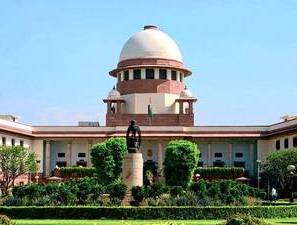

By Sunil Garodia
First publised on 2023-01-04 06:10:04
The Supreme Court, in a significant judgment, held that the curbs on free speech listed in the Constitution are 'exhaustive' and there is no need to curtail free speech further. The court decided on a reference to examine whether it was necessary to curb free speech of a public functionary. In that respect, the court said a statement made by a minister will have to be seen as being made in his or her personal capacity and cannot be vicariously attributed to the government on the basis of the principle of collective responsibility. But Justice B V Nagarathana differed - she was of the opinion that it has to be seen if the minister was talking in his or her official capacity as the representative of the government and if that was the case, then the view will have to be taken as the view of the government. The majority judgment also said that politicians making intemperate remarks as private citizens can be sued.
Although this judgement is significant as it bats for free speech, there are two basic things which the apex court or the Parliament has to address. The first is giving all curbs against free speech listed in the Constitution a proper, precise and unambiguous definition. The terms used in the Constitution - sovereignty and integrity of India, security of the state, friendly relations with foreign States, public order, decency or morality, or in relation to contempt of court, defamation or incitement to an offence - are open to various interpretations and are often invoked in a biased manner to curb free speech. The second is to similarly define hate speech and within the ambit of the Constitution, have a separate law to tackle the growing menace. There is no doubt that the right to freedom of expression is one of the most important rights enshrined in the Constitution and empowers the citizens to protest against wrongs but when this right is used to spew hate and abuse others, it has to be examined whether it can be said to come under the reasonable restriction of going against public order, decency or morality (Justice Nagarathna was right in saying in her separate judgment that it is for the Parliament to decide whether such further restrictions can be imposed). For, if someone's right to freedom of expression is in conflict with the interest of the wider community (for instance, a hate speech by someone might spark riots) such right needs to be further restricted.











